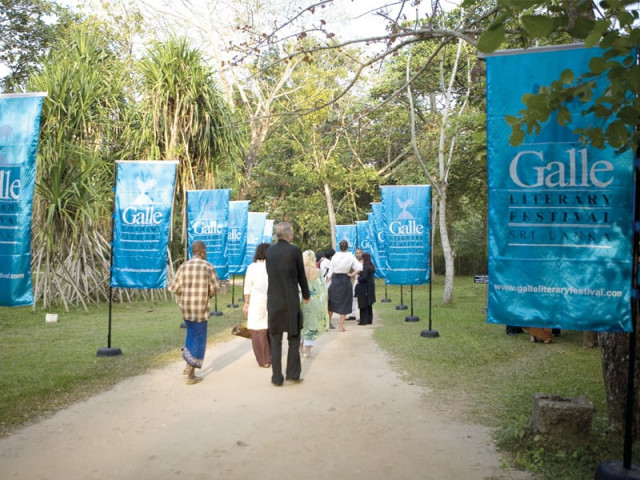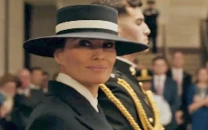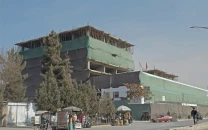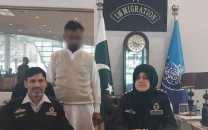Galle Literary Festival: Calling all bookworms
The sixth Galle Literary Festival will take place next week.

Galle Literary Festival: Calling all bookworms
Running for the sixth consecutive year the festival is scheduled to take place from January18 to 22, and apart from being an acclaimed literary gathering has also assumed an important platform in recent years for carrying out debates on political and cultural issues in the post-conflict scenario that has emerged in Sri Lanka. Pertinent issues such as “forgiveness, reconciliation and responsibility” in literature and the response of literature and visual art to tackle these issues are some of the topics which have been included in panel discussions. Similarly the challenges posed by political violence, exile, tribes on verge of extinction, contradictions within the community and economic marginalisation in the South Asia region as well as in the global context, are predominant subjects that are likely to generate debate.
The history of the GLF is both interesting and captivating as the festival was ranked number one amongst literary events in the world by Harper’s Bazaar (UK) in its very first year. Now a regular fixture in the international literary circuit its shadows and competes with another grandest literary carnival, Jaipur Literary Festival that is staged in the neighboring Indian pink city of Jaipur at almost the same time. However, the political turmoil and ethnic conflict which was witnessed in Sri Lanka in previous years and how it has influenced the society gives an edge and mileage to the gathering of Galle.
Going an extra mile this year, organisers have drawn support from some of the top international corporate houses and diplomatic missions and have lined up a series of renowned writers in order to cater to the needs and tastes of diversified literary enthusiasts. Prominent amongst them and sure to be one of the festival’s big draw this year is Richard Dawkins — the controversial British ethologist who has disputed the existence of God in his book The God Delusion — followed by bestselling British novelist Joanna Trollope whose stories of fraught have earned a dedicated following. Among the diverse galaxy of writers from the US, UK, Palestine, India, Canada and Sierra Leone also include Dr Izzeldin Abuelaish a nominee of Noble Peace Prize. Abuelaish a Palestinian medical practitioner, was born and raised in a refugee camp, lost his three young daughters in January 2009 when they fell victim to Israeli shelling directly into their bedroom. He came out with an award winning and inspiring memoir I Shall Not Hate: A Gaza Doctor’s Journey.
Equally important are two renowned biographers are Nayantara Sahgal and Katherine Frank who will figure in the festival. The duo has penned down an iconic biography of Indira Gandhi and discussed her personal and political legacy on the modern India. Another success story is John Boyne’s The Boy in Striped Pyjamas, a draft of the book was written in two-and-a-half days and then went on to sell five million copies and bagged numerous awards and was made into a feature film.
According to the festival’s founder and director, Geoffry Dobbs, “The purpose is to celebrate the English language and English writings not only by native writers but also by the diaspora who are engaged in writing and expressing their views on the issues confronting the society at large.” Dobbs was of the view that “it is not easy to be a writer and therefore encouragement is also needed among the budding writer to share their experiences and also use them as a vehicle for social change”.
GLF, which has often been described as a veritable elitist farce in nature, has also been marred by boycott and withdrawal in previous years due to Sri Lanka’s poor human rights record and non settlement of issues concerning freedom of expression. Nevertheless, those at the helm of affairs at the festival maintain that they believe in the power of literature and creativity and they are committed to share their experience and exchange opinions for any social betterment. For them literature or any creative activity is a potent medium to address all conflicts
The venue for the festival is a 300 years old historic landmark fort located on southern coastline of the city which has been declared as a heritage site by Unesco. Galle Fort with its rustic charm was originally built by Dutch and was later renovated during the period of British colonisation of Ceylon, and not only holds the nostalgic charm of the forgotten era but also promises a wholesome literary ambiance.
Published in The Express Tribune, January 16th, 2012.



















COMMENTS
Comments are moderated and generally will be posted if they are on-topic and not abusive.
For more information, please see our Comments FAQ